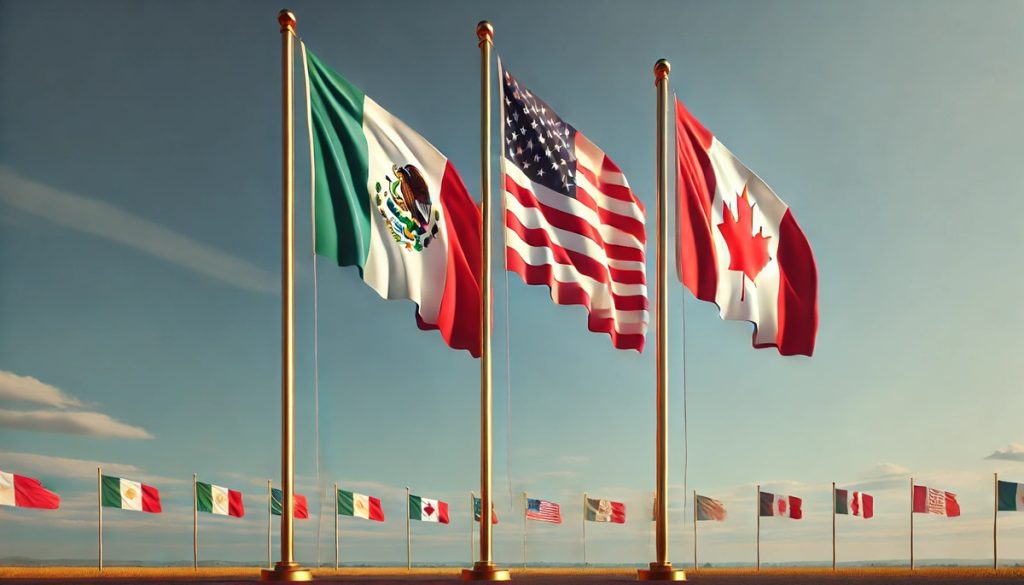President-elect Donald Trump plans to impose sweeping tariffs on imports from Canada, Mexico, and China, reigniting trade tensions and raising questions about the future of the USMCA agreement.
A Return to Aggressive Tariff Policies
Donald Trump’s trade policies are back in focus as the president-elect announces plans to introduce a 25% tariff on imports from Canada and Mexico on his first day in office. The proposal, unveiled via Truth Social, also includes an additional 10% tariff on goods from China, building on his campaign promises to reshape global trade.
These moves are reminiscent of Trump’s first presidency, when the U.S. waged a trade war against key trading partners. The proposed tariffs threaten to strain the 2018 United States-Mexico-Canada Agreement (USMCA), which had eased tensions among the North American countries. The agreement is slated for review in 2026, but experts warn that unilateral tariff increases could provoke retaliation and destabilize the pact.
Economic Ripples and Industry Reactions
The potential fallout is significant. Retaliatory tariffs from Canada and Mexico could target U.S. exports, including agricultural products and chemicals, adding pressure to American industries already grappling with inflation. The National Retail Federation projects that increased tariffs could cost U.S. consumers up to $78 billion annually in lost spending power.
Manufacturers reliant on imported components also stand to lose. Sanjay Patnaik of the Brookings Institution described the potential tariff hikes as “devastating” for production costs, while economist Mary Lovely noted that companies might be forced to create separate supply chains for U.S. exports, complicating operations.
Adapting to a New Trade Landscape
As companies brace for these changes, some are proactively shifting their sourcing strategies. Brands like Williams-Sonoma, Steve Madden, and Ralph Lauren have diversified their production footprints to reduce reliance on China and mitigate potential risks. Ralph Lauren, for instance, has spent years building a globally agile supply chain, with CEO Patrice Louvet emphasizing its readiness to navigate tariff-driven disruptions.
Even before Trump’s announcement, firms like Steve Madden and Adidas were reducing imports from China. Steve Madden aims to cut China-sourced goods by 45% by 2025, while Adidas’ existing diversification efforts position it well for anticipated policy shifts.
What’s at Stake?
The reintroduction of aggressive trade policies could reshape global supply chains and disrupt longstanding trade relationships. The USMCA’s stability hangs in the balance, with experts cautioning that escalating tariffs could lead to retaliatory measures and further economic strain. For manufacturers, retailers, and consumers, the coming months will test resilience and adaptability in the face of revived trade tensions.



